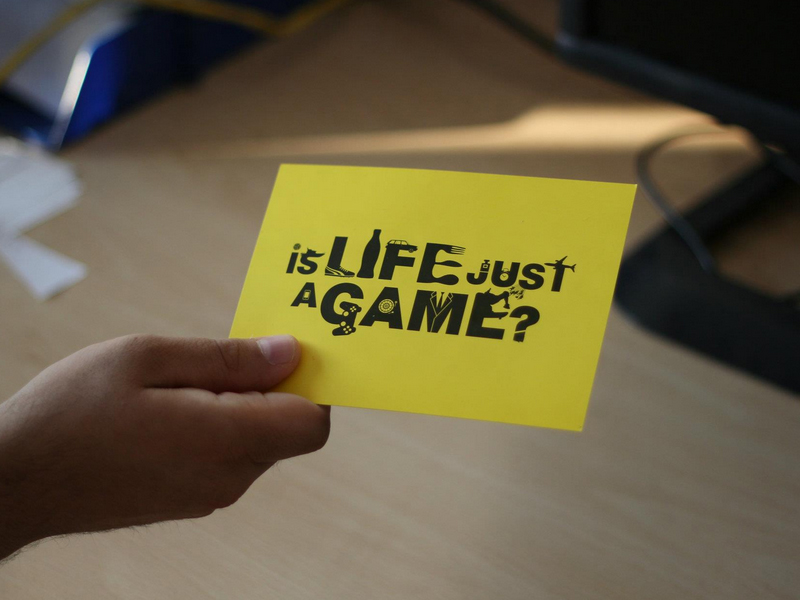A sign of faith is that you love for others what you love for yourself. The Prophet Muhammad (peace be upon him) said,
“You will not truly believe until you love for your brother want you love for yourself.”
[Narrated by Bukhari]
The brotherhood mentioned here is not just Islamic brotherhood, rather it refers to humanity. The classical scholar, Imam Rajab Al-Hanbali, in his Compendium of Knowledge and Wisdom, argues that this means human beings. This relates to another Prophetic gem, where the Prophet (peace be upon him) said,
“Love for humanity what you love for yourself.”
[Narrated by Al-Bukhari, Tareekh Al-Kabeer]
Since we Muslims love Allah and His messenger, then it follows that we must share this love with our brothers and sisters in humanity. Otherwise, we may not truly believe. From this perspective, conveying Islam to people is actually spreading love.
One way of spreading this love is wanting people to be truly happy. Our timeless Islamic teachings tell us that people will be happy if they are mindful of their Lord,
“…and a happy future belongs to those who are mindful of Him.”
[The Qur’an, Chapter 7, Verse 128]
The Pursuit of Happiness
The “pursuit of happiness” is an essential part of our human nature. All of us want to be happy – even when sometimes we cannot pinpoint exactly what “happiness” is. This is why if you were to ask the average person why they want to get a good job, they would probably reply, “to earn enough to live comfortably”. However, if you questioned them further and asked them why they want to live comfortably, they would more than likely say – like many of us – “because I want to be happy”. But happiness is ultimately an end, not a means. It’s the final destination, not necessarily the journey. We all want to be happy, so we endlessly seek ways to help us achieve that final happy state.
The journey that people seek varies from one person to the next. Some dedicate years to adding qualifications and career credentials to their names. Others work tirelessly in gyms to achieve their perfect figure. Those who desire the love of family often end up sacrificing their lives to the care of their spouse and children. Whilst some simply party their weekends away with friends, seeking a release from the relentless cycle of another tough week at work. The list is endless. Whether it’s through money, status, other people or “just a good time” – everybody is involved in trying to “get happy”, and eventually just be happy. Which begs the question, what is true happiness? If it exists, where does it lie and how do we get there?
To help people answer these questions, we can give them the following scenario:
While reading this article, you are sedated against your will. Suddenly you wake up and find yourself on a plane. You’re in first class. You have your own cabin. The food is heavenly. The seat is a flatbed, designed for a luxurious comfortable experience. The entertainment is limitless. The service is out of this world. You start to use all of the excellent facilities. Time starts to pass.
Get them to think for a moment, and ask them the following question: Would you be happy?
How could they be? They would need some questions answered first. Who sedated them? How did they get on the plane? What’s the purpose of their journey? Where are they heading? If these questions remained unanswered, how could they be happy? Even if they started to enjoy all of the luxuries at their disposal, they would never achieve true happiness. Would a frothy Belgian chocolate mousse on their dessert tray be enough to drown out their questions? It would be a delusion, a superficial and temporary form of happiness, only achievable by deliberately ignoring and suspending these critical questions.
Now get them to apply this to their life.
Their coming into existence is no different to being sedated and thrown on a plane. They never chose their birth, their parents or where they come from. Yet, some people do not ask the questions or search for the answers that will help them achieve the ultimate goal of happiness.
Where does happiness lie?
Where does true happiness lie? Inevitably, if we reflect on the previous example, happiness really lies in answering key questions about our existence. These include, “what is the purpose of life?” and “where am I heading after my death?” In this light, our happiness lies in our inwardness, in knowing who we are, and finding the answers to these critical questions.
Unlike animals, we cannot be content by simply living and reacting to our instincts. Obeying our hormones and mere physical needs will not bring happiness. Yet, some of us just follow our carnal needs. Our jobs may require PhDs or other qualifications, and we may wine and dine with our partners, but all of that is still reduced to mere survival and procreation. Happiness cannot be achieved unless we answer the critical questions and find out who we really are.
Is life is just a game?
A popular view about life is that it is “just a game”. To achieve happiness all one has to do is just make most of it. However, is life just a game? This belief ignores or denies the supernatural, and any form of Divine accountability. Why would there be? When you play a game you either win or lose, and then you move on to the next game, and then you eventually die.
However, under this view, the questions we have to answer to achieve true happiness do not have any real answers. Why are we here? No reason at all. Where are we going? Nowhere. We will just face death. We all need to answer the fundamental question of why we are here. In Islam, the answer is simple, yet profound. We are here to worship God.
Worshipping God
Worship in Islam is quite different to the common understanding of the word. Worship can be in each and every act that we do. It is in the way we walk and talk to each other; to the small acts of kindness we do each and every day. If we focus on pleasing God by our actions, then our actions themselves become an act of worship.
So worship is not merely limited to the spiritual acts like prayer and fasting but worshipping God means loving Him, pleasing Him, and knowing Him. Knowing and worshipping God is the ultimate purpose of our existence; it frees us from the “slavery” to others and society. God, in the Qur’an, presents us with a powerful example:
“God puts forward this illustration: can a man who has for his masters several partners at odds with each other be considered equal to a man devoted wholly to one master? All praise belongs to God, though most of them do not know.”
[The Qur’an, Chapter 39, Verse 29]
Inevitably, if we do not worship God, we end up worshipping other “gods”. Think about it. Our partners, our bosses, our teachers, our friends, the societies we live in, and even our own desires, “enslave” us in some way. Take for example social norms. Many of us define our sense of beauty based on influential social pressures. We may have a range of likes and dislikes, but these are shaped by others. Ask yourself, why am I wearing these trousers or this skirt? Saying you like it is only a shallow response, the point is why do you like it? If we keep on probing in this way, many will end up admitting “because other people think it looks nice”. Unfortunately, we have all been influenced from the endless adverts that bombard us.
In this respect, we have many “masters”, and they all want something from us. They are all “at odds with each other”, and we end up living confused, unfulfilled lives. God, who knows us better than we know ourselves, who loves us more than our mothers love us, is telling us that He is our true master, and only by worshipping Him alone will we truly free ourselves.
The next question is; where are we going? We have a choice: to embrace God’s eternal unbounded mercy, or to run away from it. Accepting His mercy, by responding to His message, and obeying, worshipping and loving Him, will facilitate our eternal happiness in paradise. Rejecting and running away from God’s mercy necessitates that we end up in a place devoid of His love; a place of unhappiness – hell. So we have a choice. Either we decide to embrace His mercy or try to escape from it. We have the free will to choose. Even though God wants good for us, He cannot force us to make the right choices. The choices we make in this life will shape our lives after we die:
“… and when that Day comes, no soul will speak except by His permission, and some of them will be wretched and some happy.”
[The Qur’an, Chapter 11, Verse 105]
Since our ultimate purpose is to worship God, then to do so would be to establish our natural balance and to find out who we really are. When we worship God, we free ourselves, and find ourselves. If we do not, then it would be like forgetting what makes us human.
“And be not like those who forgot God, so He made them forget themselves.”
[The Qur’an, Chapter 59, Verse 19]
To conclude, believing that life is just a game cannot provide profound answers for our existence, and therefore real happiness can never be achieved. If someone argues that they are happy under this view, I would argue it is a drunken type of happiness. They only sober up when they start thinking deeply about their own existence.
If this has created some interest and motivated you to want to talk about this topic to your brothers and sisters in humanity, then join us on the 20th August 2016 for World Dawah Mission. To find out more, click here.
Hamza Tzortzis is an international lecturer and debater. He is currently the Head of Education and Research at the Islamic Education and Research Academy (IERA). You can follow him on Twitter @HATzortzis



